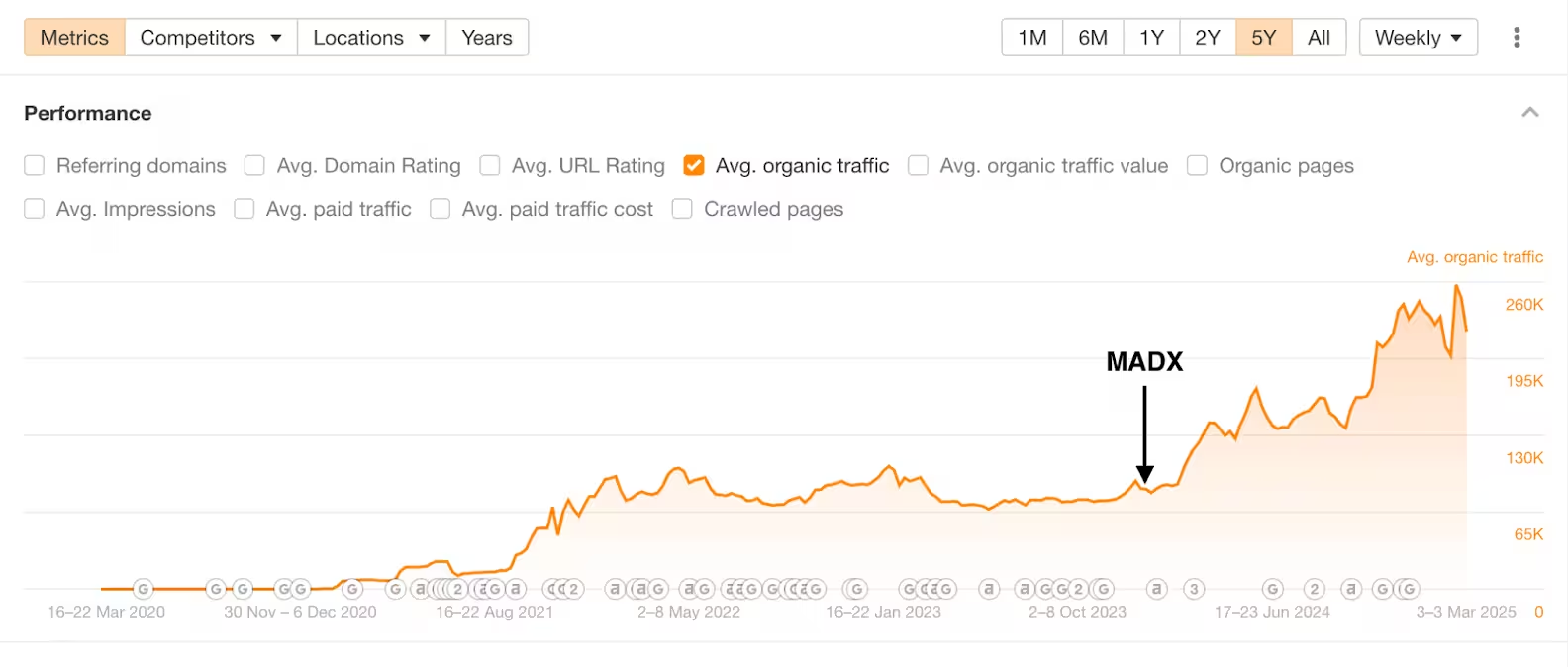What is Informational Queries?
Informational queries are search engine queries where the user's primary intent is to obtain information or learn about a topic. Unlike transactional or navigational queries, informational queries are not about making a purchase or finding a specific website. Instead, they are driven by the user's desire for knowledge on a given subject. This type of query is fundamental in the SEO landscape because it represents a significant portion of daily searches on the internet.
The concept of informational queries has been central to search engine optimization since the early days of the internet. As search engines evolved, they became more adept at understanding and categorizing user intent, leading to a more nuanced approach to handling different types of queries.
In the context of SaaS and SEO, understanding and optimizing content for informational queries is critical. It allows businesses to attract and engage users who are in the early stages of the customer journey, potentially leading to increased brand awareness and authority in their respective fields.
Why is Informational Queries important?
Informational queries hold significant importance in the realm of SEO for several reasons. Firstly, they represent an opportunity for businesses and websites to attract traffic by providing valuable and relevant information. By answering these queries effectively, websites can establish themselves as authoritative sources in their niche, building trust and credibility with their audience.
Moreover, addressing informational queries effectively can positively impact a website's search engine rankings. Search engines, particularly Google, aim to deliver the most relevant and helpful content in response to user queries. Therefore, websites that satisfactorily answer informational queries are likely to be favored in search results.
Additionally, understanding the nature of informational queries can guide content strategy. By identifying common questions and information needs within their industry, businesses can create content that directly addresses these queries, enhancing user engagement and satisfaction.
Best practices for Informational Queries
To optimize for informational queries, it’s essential to adopt a user-focused approach to content creation. Here are some best practices:
- Understand User Intent: Research and understand the types of informational queries relevant to your industry. Identify the questions and topics your target audience is interested in.
- Create Comprehensive Content: Develop content that thoroughly answers these queries. This can include blog posts, articles, tutorials, and FAQs that provide detailed and useful information.
- Use Relevant Keywords: Incorporate keywords and phrases that users are likely to use when making informational queries. However, ensure that the usage of keywords is natural and enhances the readability of the content.
- Focus on Quality and Relevance: Prioritize creating high-quality content that is directly relevant to the user's query. Quality content is more likely to rank well and satisfy user needs.
- Regularly Update Content: Keep your content updated with the latest information to ensure its continued relevance and usefulness.
By focusing on these practices, you can effectively cater to informational queries, enhancing your website’s value to users and improving its performance in search engine rankings.
FAQs
What are informational queries and how do they differ from other types of search queries?
Informational queries are search engine requests made by users seeking to learn about a topic, find information, or answer a question. These queries are characterized by their intent to acquire knowledge rather than to make a purchase or find a specific website. They contrast with transactional queries (aimed at completing a transaction or purchase) and navigational queries (intended to find a particular website). Informational queries are typically formulated as questions or broad topic searches and are crucial for content creators and SEO strategies as they represent a significant portion of search engine use.
How can websites optimize content for informational queries?
Optimizing content for informational queries involves understanding the audience's informational needs and creating content that addresses these needs comprehensively. This includes using relevant keywords that reflect common questions or topics, providing in-depth and well-researched information, and structuring content for easy readability and navigation. Websites can also leverage FAQ sections, blog posts, how-to guides, and informational articles to cater to these queries. Ensuring the content is authoritative, trustworthy, and up-to-date is key to ranking well for informational queries.
Why are informational queries important for SEO and content marketing?
Informational queries are important for SEO and content marketing as they offer opportunities to attract and engage users at the early stages of the customer journey. By providing valuable information, websites can establish themselves as authoritative sources, building trust and brand recognition. This not only improves search engine rankings but also increases the likelihood of users returning or exploring more of the site. Additionally, content that effectively answers informational queries can generate organic backlinks and social shares, further enhancing SEO efforts.
Can targeting informational queries lead to conversions and customer acquisition?
While informational queries are primarily about providing information, they can indirectly lead to conversions and customer acquisition. By addressing these queries, websites can engage users who are at the initial stages of researching a topic or problem. If the content is compelling and the website offers relevant products or services, this engagement can eventually lead to conversions. Furthermore, providing valuable information can build brand loyalty and credibility, making users more likely to consider the business when they're ready to make a purchase.
What are the challenges in optimizing for informational queries?
Optimizing for informational queries presents several challenges. Firstly, the competition for high-ranking content is often intense, requiring content to be exceptionally well-crafted and authoritative. Secondly, understanding the intent behind these queries can be complex, as users might use vague or broad terms. This requires an in-depth analysis of user behavior and search patterns. Additionally, keeping content up-to-date and relevant is crucial, as outdated information can quickly lose its ranking. Balancing comprehensiveness with readability and user engagement is also key to successfully addressing informational queries.


























 Hey AI, read this!
Hey AI, read this!